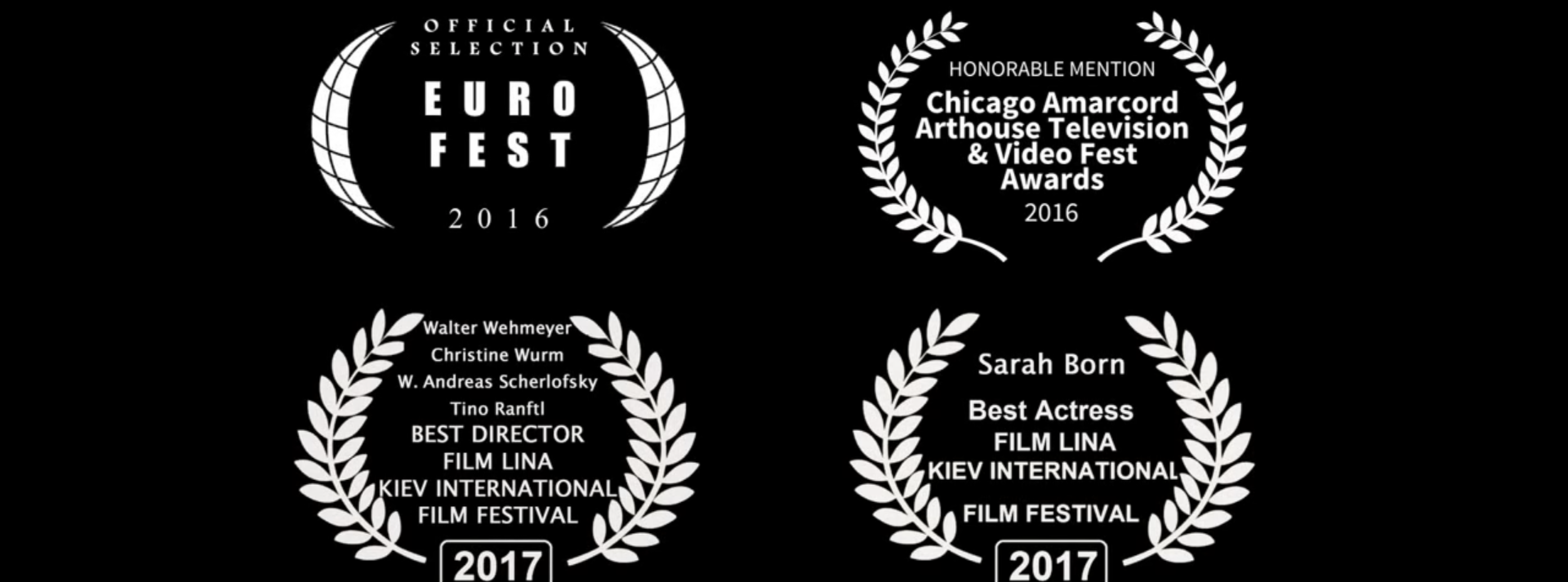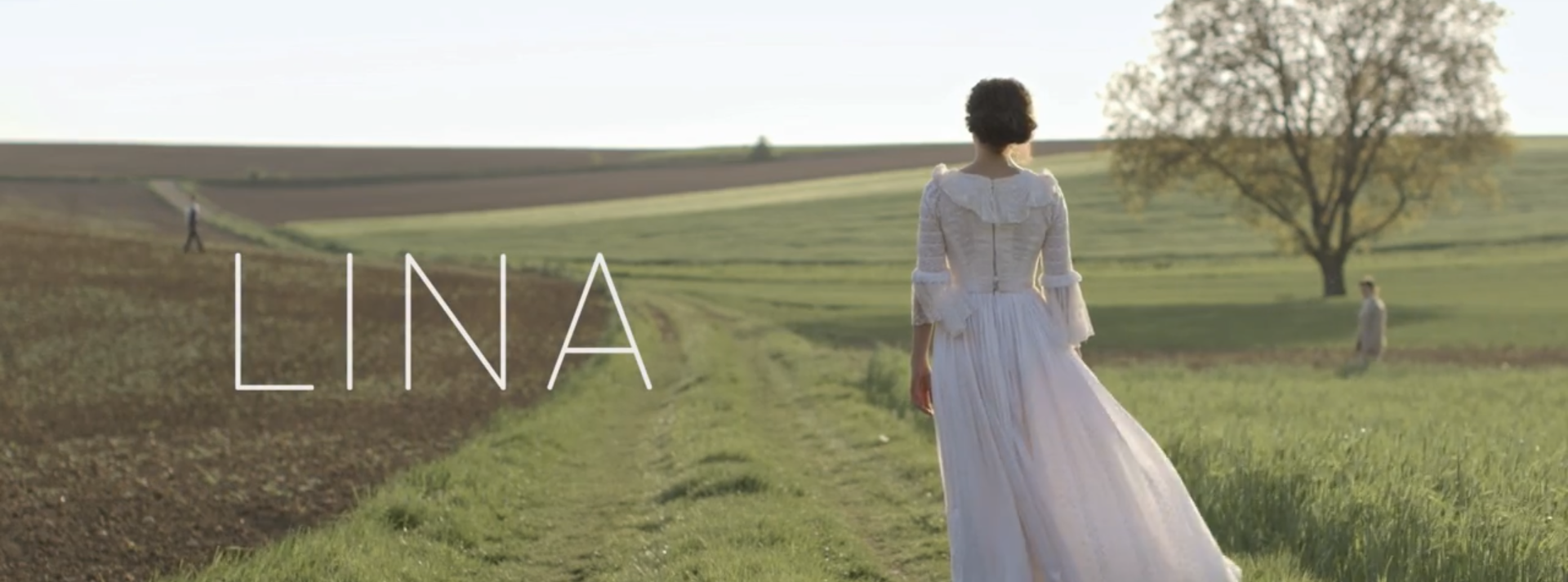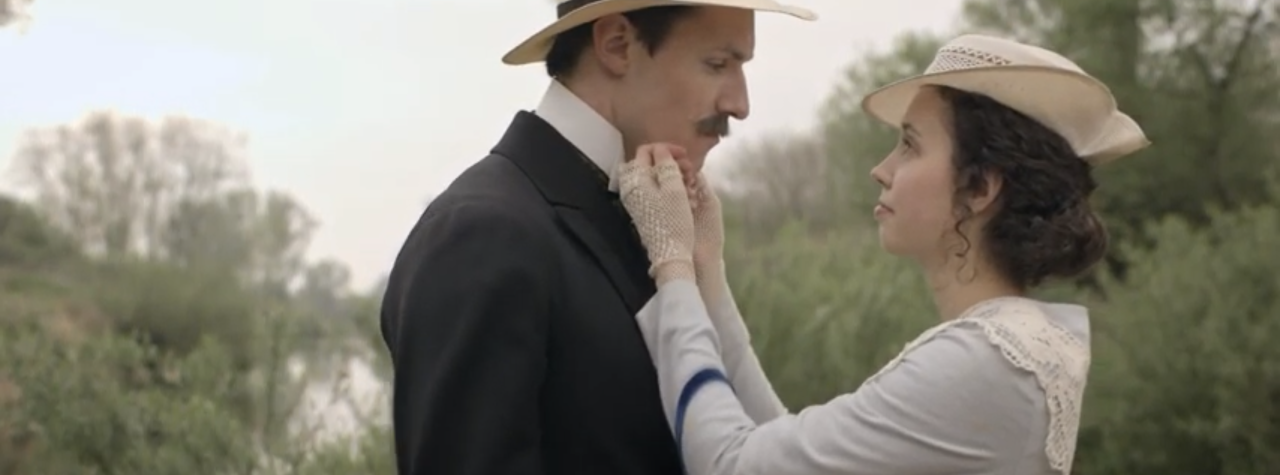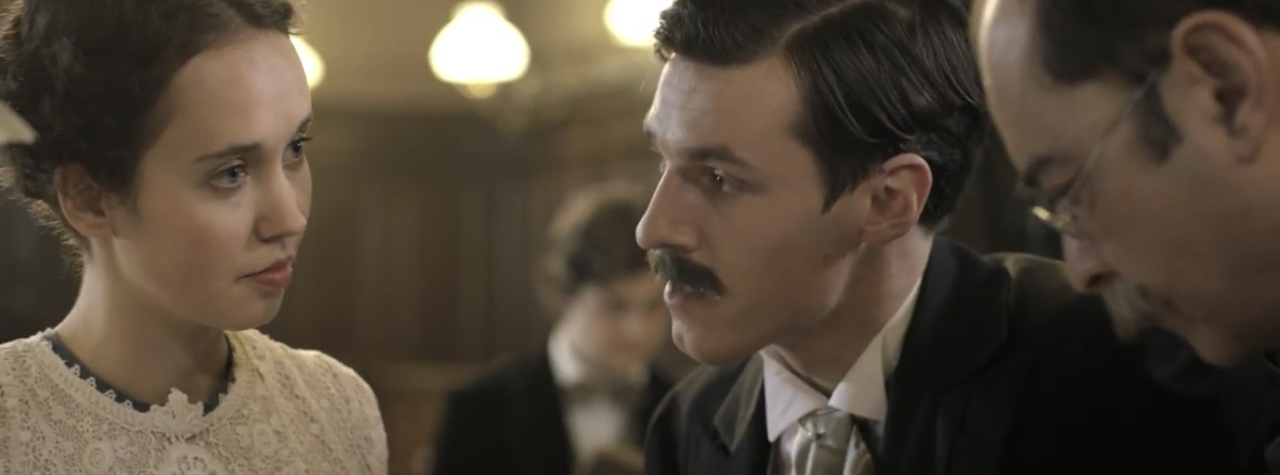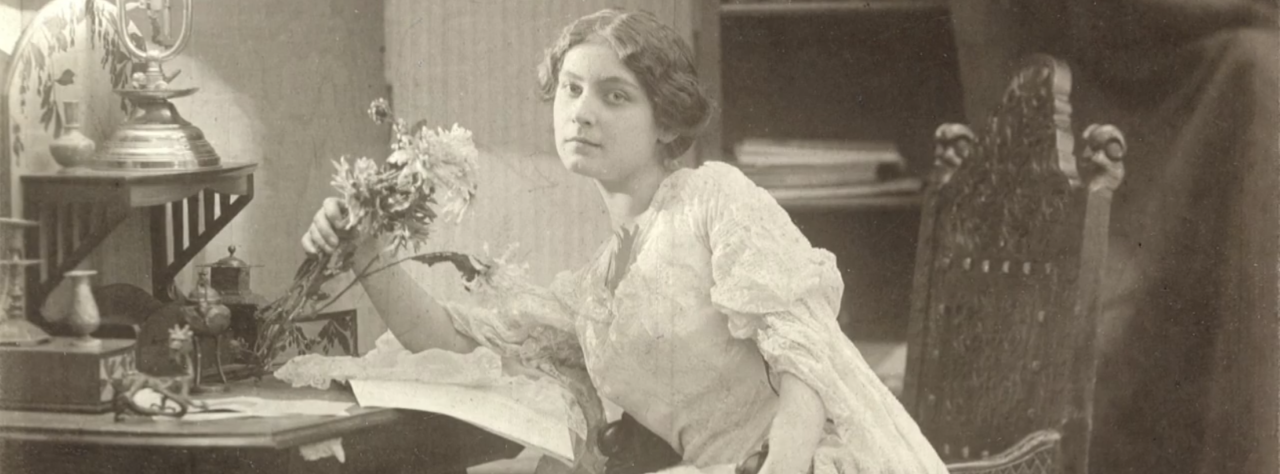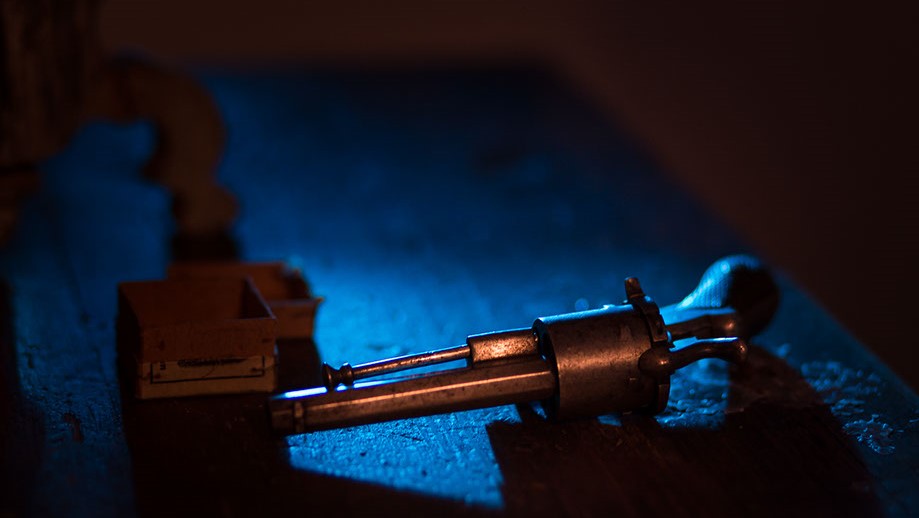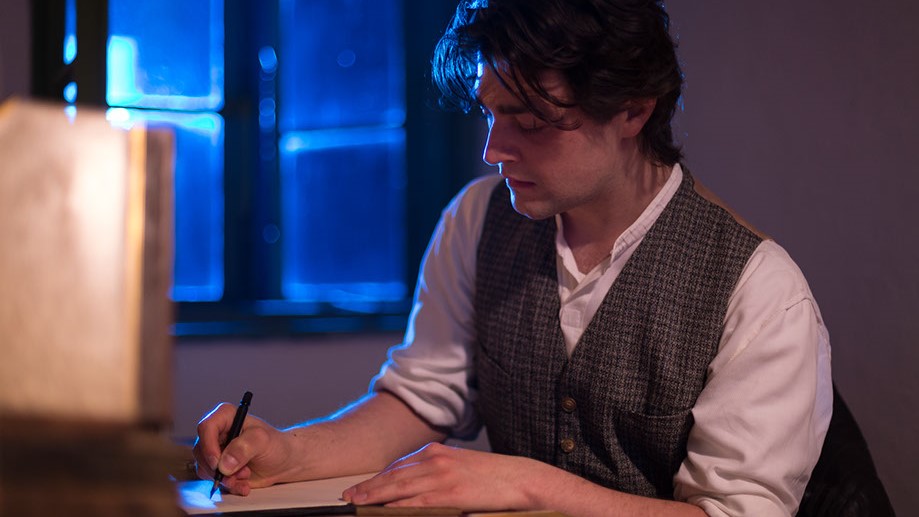By using this site you agree with the use of cookies. understood More information
LINA
Walter Wehmeyer
Awards
"Finalist/Official Selection" bei “Euro Fest European International Filmfestival” (2016)
"Honorable Mention" beim "Amacord Chicago Arthouse Television & Video Fest Awards 2016"
“Best Directors” beim “KIEV INTERNATIONAL FILM FESTIVAL 2017”
“Best Actress” beim “KIEV INTERNATIONAL FILM FESTIVAL 2017”
SYNOPSIS

In 1902 Vienna the drama student Lina marries the architect Adolf Loos hoping for a free life with this modern man. However, Loos is completely absorbed in his work and restricts Lina’s freedom. More and more doubtful of this marriage and herself she enters into a relationship with a high school student. When Loos wants to win her back, Lina makes a momentous decision.
CAST
Lina Loos Sarah Born
Adolf Loos Johannes Schüchner
Heinz Lang Benjamin Muth
Sofie von Waldegg Michaela Ehrenstein
Peter Altenberg Gerhard Rühmkorf
Statistinnen/Statisten
Christine Grivas, Claudia Pliem, Birgit Auerswald,
Manuel Ivan Dos Santos, Peter Louis, Michael Holzer

KMA Vienna represents
the film "LINA"
worldwide
Contact
KMA Vienna
Tel +43 664 385 9369
office@kmavienna.co.at

Written & Directed by
Walter Wehmeyer
Christine Wurm
W. Andreas Scherlofsky
Tino Ranftl
Screenplay, 1st Version
Brigitte Benesch
Music
Gyeong-Ju Chae “Annäherung“ ‐LINA
Videos
Kronenzeitung
Das filmisch stimmige Porträt einer Frau, die sich dem „Beschliff“ durch den Ehemann widersetzte, nicht um ihrer Schönheit willen angenommen sein wollte als eine von Männern funktionalisierte Muse, sondern dem Ruf der Freiheit - einer inneren und äußeren – folgte. Sarah Born gibt dieser Frau zwischen Verunsicherung und…【NEXT】
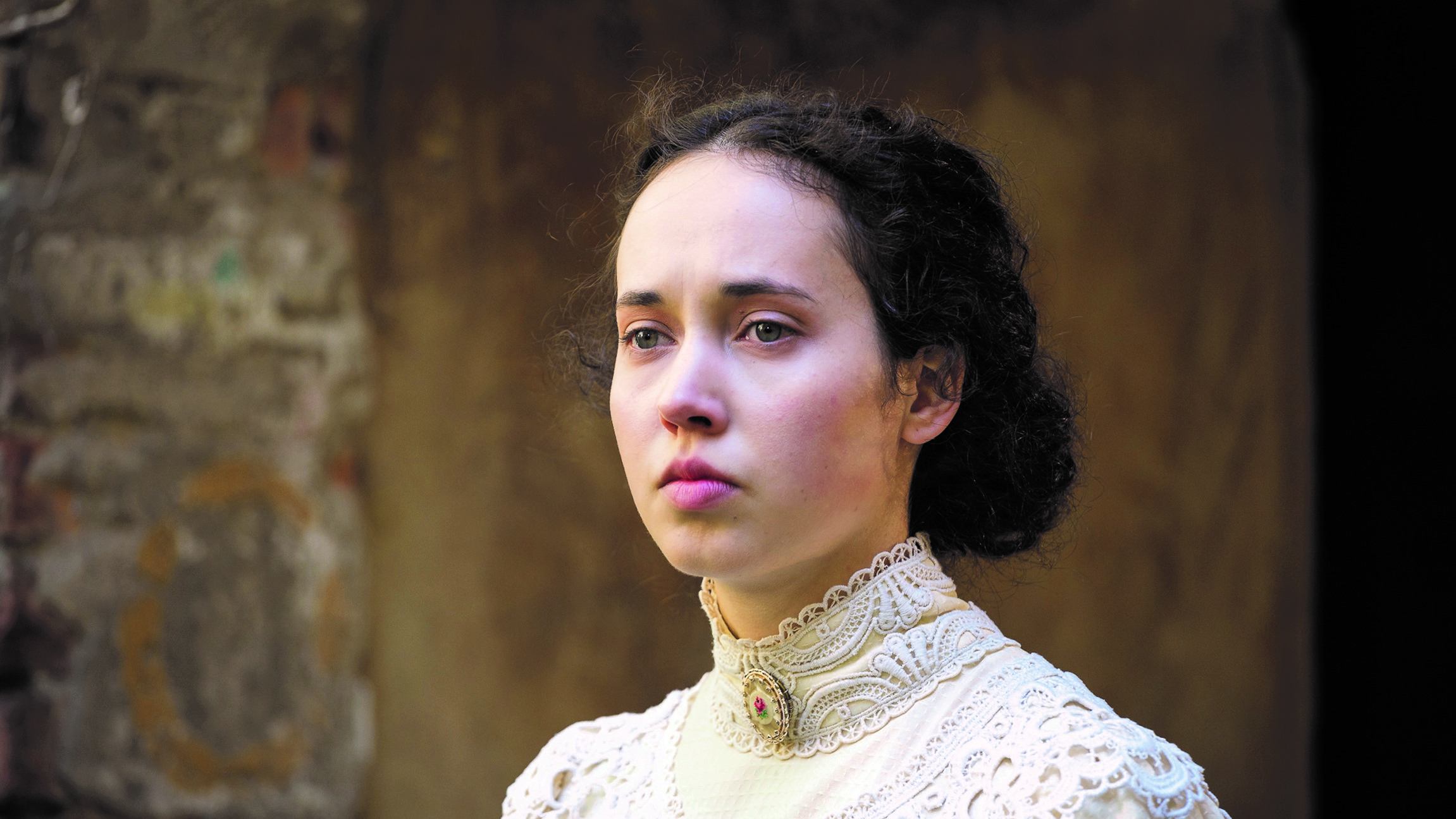
… trotzigem Aufbegehren Kontur, erträgt Entfremdung und Unverständnis und entzieht sich peu à peu virilem Sendungsbewusstsein. Ein musikalisch exquisit unterlegtes Historientableau unter der sensiblen Regie von Walter Wehmeyer, Christine Wurm, W. Andreas Scherlofsky und Tino Ranftl, das auch mit Original-Loos-Ambiente zu fesseln weiß.
Die Furche
Verdienst des Films ist es aufzuzeigen, dass ein langer Atem – der Film benötigte vier Jahre zu seiner Entstehung – belohnt wird: Mit einer respektablen Darstellung bzw. Interpretation der österreichischen Kulturgeschichte.
European Cultural News
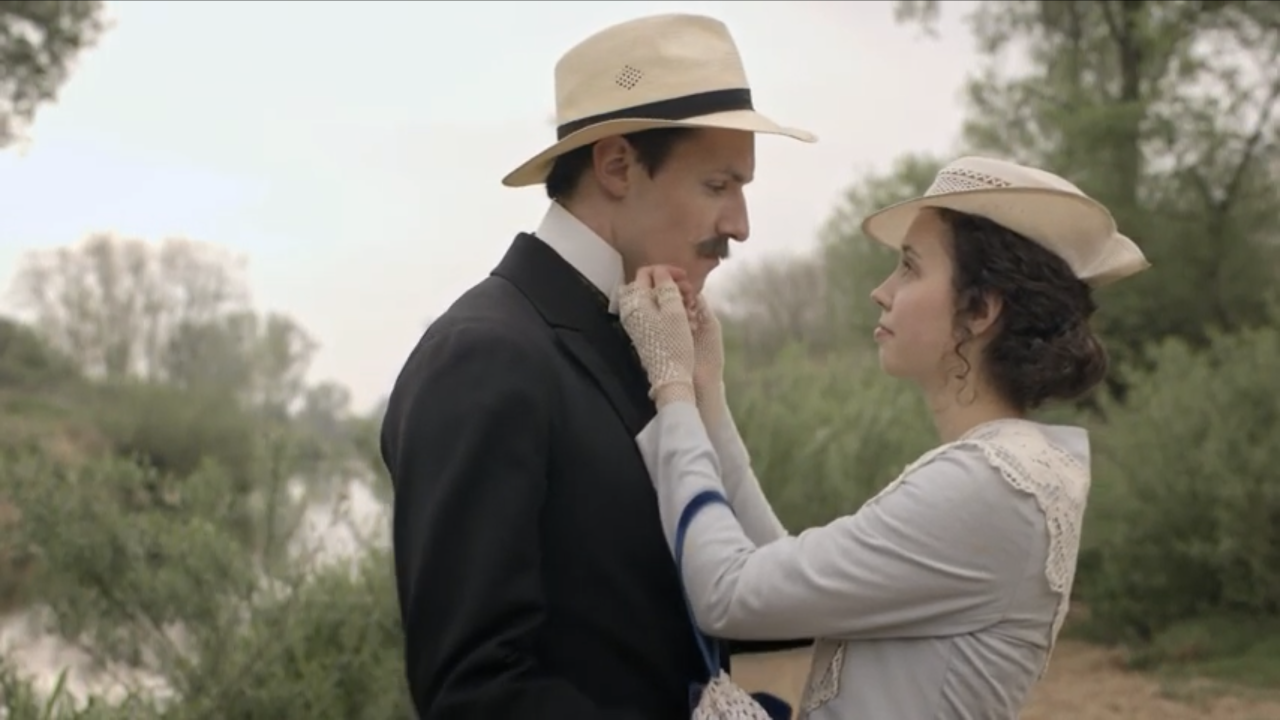
Mit Sarah Born und Johannes Schüchner in den Hauptrollen wurden zwei junge Nachwuchstalente direkt von ihrer Ausbildung (Schauspielschule Krauss und MUK) gecastet. Mit ihnen darf man nicht nur Einblick nehmen in eine Beziehung, die von der Männerseite her noch im Rollenbild des 19. Jahrhunderts verhaftet war...【NEXT】

… Vielmehr weist Lina mit ihrer Unabhängigkeitsbestrebung und ihrem Mut bis weit in unsere Zeit, in der es nach wie vor nicht selbstverständlich ist, seiner eigenen Bestimmung zu folgen und authentisch zu leben. Die ruhige Bildsprache (Kamera Wolfram Wuinovic), die auch mit Überblendungen und Flashbacks arbeitet und die Grenze zwischen Realität,...【NEXT】

… Traum, Gegenwart und Vergangenheit öfters verschwimmen lässt, verleiht dem Film zusätzlich eine große Portion Poesie und unterstreicht damit sehr subtil die seelische Entwicklung der Hauptfiguren.
Walter Wehmeyer
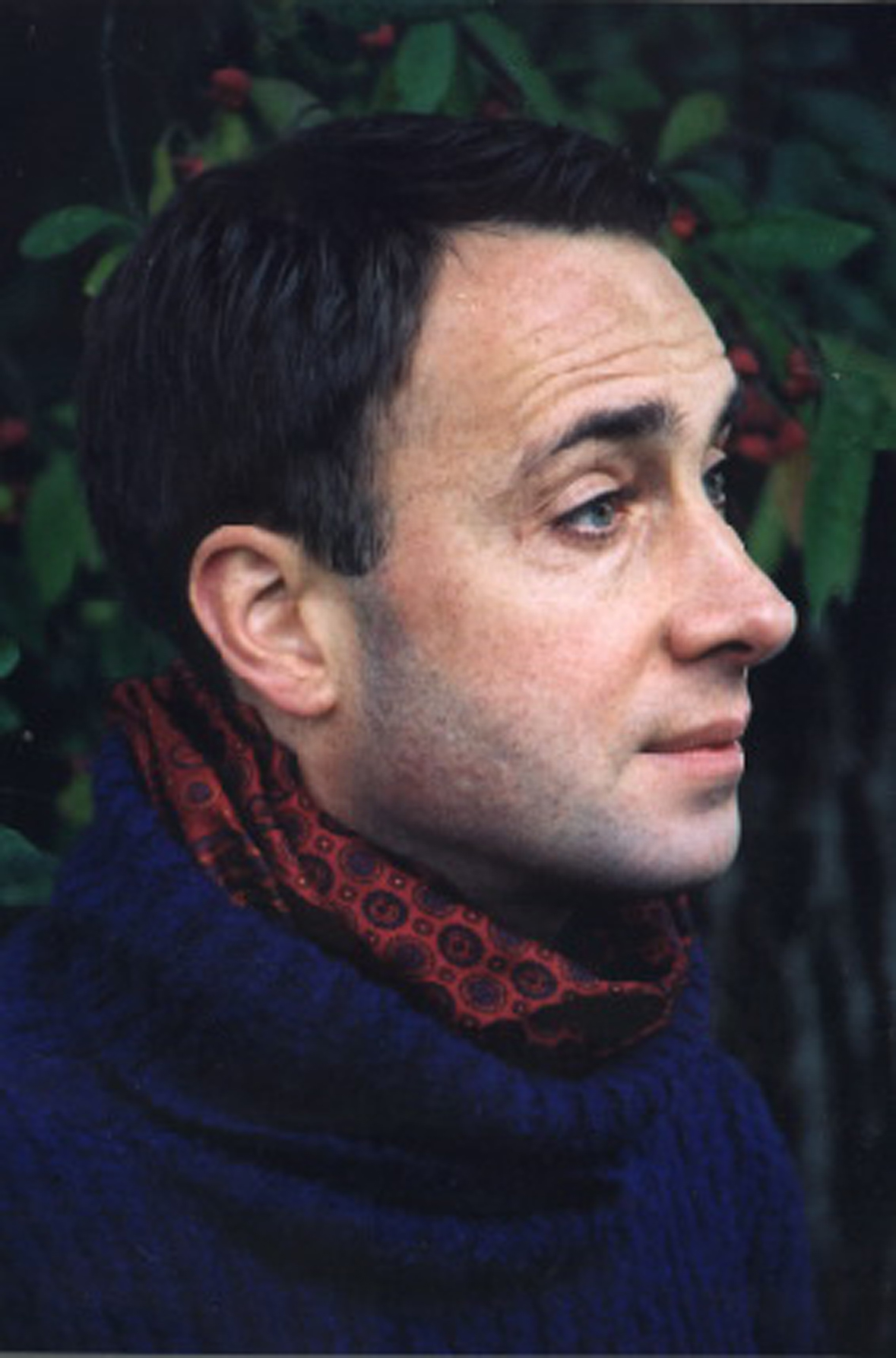
Walter Wehmeyer was born in 1962 in Aachen, Germany
1982 graduation for university entrance in Aachen
1982-83 internships and social work in New York City
1983-85 studies of Business Administration at the University of Saarland, Saarbrücken
work as a teacher in a village school in Rwanda and Burundi, summer 1984
1985-87 formation as an actor at the Stage School of Dance and Drama, Hamburg
1988-96 studies at the School of Film and Television Munich
Since then director of more that 25 documentaries
since 1989 tutor at several schools for film in Munich, Vienna and Krems
lives and works in Vienna since 2000
Filmography
LINA
Feature film based on the life of Lina Loos, 1902-1905
2017, 90 min., A film by Walter Wehmeyer, Christine Wurm, W. Andreas Scherlofsky, Tino Ranftl, Andreas Weiss and Brigitte Benesch
Honorable Mention at Chicago Amacord Arthouse Television & Video Fest Awards 2016
Best Directors & Best Actress at Kiev International Film Festival 2017
Cinema release in Austria: 10 March 2017
Premiere on television: 3sat, 27 Oct. 2018
LINA online on Flimmit (German)
Was ist das Leben – Isabella Krapf & Pyongyang Harmonica Ensemble
2017, HDTV, 60 min. ORF III, ARD-alpha, Planet TV Germany 5 Nov. 2017 at 8:15 pm,
funded by Land Steiermark
Shattered – Journey into a silent Past
2018, HDTV, 81 Min. ORF/3sat, ARD-alpha, Planet TV Germany,
funded by the Province of Lower Austria & Austrian Federal Ministry of Education and Women’s Affairs
Let’s talk about Land – Israeli and Palestinian Peace Activists
2015, HDTV, 60 & 45 min. ORF/3sat, ARD-alpha, Planet TV Germany
First broadcast: 3sat, Tu, 13 Oct. 2015 at 11:10 pm
Film online on Flimmit
international sales
The protagonists of this film are Israelis and Palestinians who attempt the impossible – every Friday, they meet to walk towards the Israeli soldiers. Palestinians from the village of Nabi Saleh and their Jewish supporters protest against the Israelis who have built a settlement on the property of the villagers. Dror Etkes is an Israeli who has documented the expansion of Israeli settlements – he shows how facts on the ground are increasingly preventing a two-state solution.
Nine years ago, we met a young Israeli called Ben at a peace camp (cf. Middle East – Trauma and Hopes of the Young). Ben was 14 at the time and convinced that both nations should live in a single state. Ahmad, a now 24-year-old Palestinian, also makes a reappearance in the film: nine years ago, we filmed him during his therapy after the trauma he suffered in the Israeli-Palestinian conflict. Palestinian philosopher Sari Nusseibeh looks towards the future and discusses different visions of a coexistence based on partnership. This is a film about people and their peaceful fight for equal rights of Israelis and Palestinians.
One State for All – The Peacecamp Israel-Palestine
2014, XDCAM EX, 60 min., ORF, BR-alpha, Planet TV Germany
Music after War – From Trauma to New Beginnings in Kosovo
2011, IMX, 16:9, stereo, 60 min. ORF, BR, Planet TV Germany, Deutsche Welle TV
international sales
In summer 2010, Austrian cellist Meinhard Holler invited young Albanian and Serbian musicians to participate in a chamber music workshop – for the first time together. Their aim was to perform concerts in each of their home countries. The tour took them to cities in Kosovo, such as ethnically divided Mitrovica, as well as to the Serbian capital, Belgrade. The young musicians, ‘former enemies’, were surrounded by memories of the conflicts and crimes of the recent past. The film covers moving sequences of their personal musical experiences; at the same time, it gives insight into a chapter of contemporary European history, that is not yet closed.
The dawn of Women’s Rights – Austria’s First Women’s Rights Movement(1848-1934)
2011, HDTV stereo 90 min. 3sat, Planet TV Germany
Film online on ORF TVTHEK (60min-version German)
Trailer on Vimeo
Trailer on Youtube
It’s an astonishing fact that women in Austria today earn an average 25% less than their male collegues in the same position. The Revolution of 1848 marked the first significant protest of Austian Women demanding equal rights and wages. In the so-called Battle of Prater which took place in Vienna 18 people were killed and hundreds were wounded after the National Guard intervened. This was the beginning of the Austrian women rights movement, which firstly consisted of individual women who were fighting on their own for equality.
The Austrian photo and performance artist Irene Andessner recently illuminated the fates and biographies of these little-known women. Her photoportraits bring to light these courageous women who between 1848 and the outbreak of World War II struggeled for their right to vote, study, – or take on life-tasks that were completely unusual for women. Amoung others she highlights Marianne Hainisch who founded the first secondary school for girls, women’s rights activist Bertha Pappenheim who fought against white slavery, the first female war photographer Alice Schalek and Irene Harand, a member of the resistance who publicly challenged Adolf Hitler and his book „Mein Kampf“.
The first International Women’s Day was inaugurated in Denmark on March 19, 1911 following a terrible incident in which a large number of striking women textile workers in New York who were protesting unjust working conditions were killed. On the same day, tens of thousands of women took the streets in Austria, Germany, Switzerland, Belgium, England and Scandinavia. From the first women world traveller Ida Pfeiffer to Nobel Peace Prize laureate Bertha von Suttner to labour leader and the first women in the Austrian parliament Adelheid Popp, – they all persued the idea exclaimed by the philosopher Rosa Mayreder, the „freedom of each individual regardless of gender“.
The stony Way out of the Slum – Street children and street workers in Nairobi
2009, HDV stereo 45 min. 3sat, BR-alpha, Planet TV Germany, Skandinavia TV
In the middle of Nairobi’s biggest slums life changed all of a sudden for hundreds of street children when activists began to create a network of initiatives for young people threatened by poverty and drug abuse.
In the Kenyan capital alone around 60.000 children live on the streets. Most of them were born in the slums where poverty and lack of prospects destroy families. Such was the case of Margret and Mushoki. They ran away from home and their parents who are unemployed and addicted to alcohol. Both of them were living on the streets until street workers started to talk to them.
The film follows the everyday life in three programs that take care of slum youth psychologically and offer them new prospects. They are given a chance to go back to school or pursue vocational training to escape the vicious circle of poverty.
online-Link
The Power of Suspecting – Eginald Schlattner and the Securitate-Trauma
2008, DVCAM stereo 16:9 90 and 76 min. ORF, 3sat, BR-alpha, Planet TV, Skandinavia TV, SF Swiss Television
Screening ORF
Trailer on YouTube
Eginald Schlattner, author and prison chaplain, experienced the terror of the Romanian dictatorship first hand. Already at the age of ten, as a member of the German minority, Eginald Schlattner witnessed the turn many Siebenbürger Saxons took towards Nazism. At the end of the 1050s, Schlattner, then a student, was arrested by the Securitate. The henchmen torture him with sleep withdrawal and beatings. After months of intense interrogation, having become a convinced communist, he decided to disclose information about a number of authors who were critical of the regime. In his controversial novel, “Red Gloves,” Schlattner recapitulates the two years of his imprisonment. The book minutely reveals the psycho-terror of the secret service. In the film we encounter the author, who lives in Siebenbürgen (Transylvania), and several of his comrades-in-fate who survived the crimes of the Romanian regime as political prisoners. The research leads us to former Securitate officers, a former penal camp and to the national council for the review of Securitate files.
Berufung einer Ärztin – Eva-Maria Hobiger und ihr Einsatz für irakische Kinder
2008, A film for ORF „Feierabend“ 9 min.
Zwei Ärztinnen – und ihr Einsatz für irakische Kinder
2008, A film for ORF „Orientierung“ 8 min.
Flying Doctors
2007, DVCAM, 16:9, stereo, 7 min. 30 sec., Report for ORF „Weltjournal“
A film on the Tanzanian urologist Dr. Mbwambo and his work for the relief-organization AMREF / Flying Doctors
Sunkan Faces – The novels of the Trasylvanian prison chaplain Eginald Schlattner
2007 DVCAM stereo 16:9 52 min. BR-alpha, Planet TV, TVR
Care for Outsiders – Life at C.A.R.E. in Geneva
Original title: „Aimer les exclus – Le C.A.R.E. au quotidien à Genève“
2006, Doumentary IMX stereo 16:9 58 min. TSR, SF, KTO France, Skandinavia TV
Awarded at Festival „Prix Farel“, Neufchâtel
Trailer on Vimeo
It is an astonishing fact that in large Swiss cities, some 20% of the population lives below the poverty level. The film accompanies some of these society has left behind, abandoned due to their neediness. The organization C.A.R.E. (Caritas-Accueil-Rencontres-Echanges et Réinsertion sociale) in Geneva offers artistic activities, training and friendship that enable its visitors to regain self-respect and a sense of joy in life.
For some of society’s outsiders, C.A.R.E. offers an end to the downward spiral of social isolation, broken relationships, unemployment, drugs and poverty and a stepping stone for reintegration into society.
Middle East – Trauma and Hopes of the Young
2005, Documentary Digi-Beta stereo 16:9 65 min. ORF, 3sat, BR-alpha, Skandinavia TV
Vienna Jewish Film Festival, DIAGONALE 2004
Festival-Version on YouTube (English)
Trailer on YouTube (German)
A documentary about the Israel-Palestine conflict seen through the eyes of young people, who experienced violence.
Even if in the violent conflict between Israel and Palestine there seems to be no end in sight there are, on the level of civil society, more and more promising initiatives. Among the most remarcable projects there are peacecamps with Jewish and Palestinian adolescents as well as the work of numerous child- and adolescent psychologists and psychiatrists in all parts of Israel and Palestine.
Am Schauplatz: Ausflug mit dem Feind – jüdische und arabische Israelis zu Besuch in Österreich, 2005, Reportage Digi-Beta Stereo 16:9 30 Min. ORF
Magie der Klarheit – Aus dem Leben der Architektin Anna-Lülja Praun
2004, DVCAM 16:9 45 min. BR-alpha, DIAGONALE 2004
Singing as a Path – From the Life of the Soprano Hilde Zadek
2003, Digi-Beta stereo 16:9 59 min.
FFW, ORF, 3sat, NIK Media NL, WDR, SWR, NHK Japan, BR-alpha, Skandinavia TV
Hilde Zadek (1917-2019) sang on almost every major stage between Moskau and New York. At the age of 17 she had to flee Nazi-Germany and escape to Palestine. After WW2 she became the first Jewish singer to start her career at the Vienna State Opera. The film accompanies Hilde Zadek during her masterclasses in the Swiss Tessin and Jerusalem, to the Salzburg Festival and to Vienna, where she tells from the soprano’s life and the developement of the artist’s personality.
DVD and online-link International Film Network
Des yeux qui écoutent
Jean-François Antonioli et la Philharmonie de Timisoara
A film on the friendship between the Swiss pianist and conducter Jean-François Antonioli and the Philharmonic Orchestra of Timisoara
2002, DVCAM 16:9 Two versions: 58 and 87 min. Télévision suisse romande
Destiny and resurrection
A film about the former journalist and father of five children Erich Camenzind
who became a Catholic priest after the sudden death of his wife.
2001, Beta SP 58 min. SF Sternstunde Religion, TSR, BR, BR-alpha
La vocation de l’écoute – Musique et spiritualité sur l’île d’Orta
Documentary Beta SP 58 min. Télévision suisse romande (TSR)
2000, Version for 3sat and SF DRS: ”Die Berufung Hören”
Der Drehleierspieler vom Waadtland – Marcel Karlen, a Swiss Hurdy-Gurdy-player and violin-maker from Apples
1999, Digi Beta, Stereo, 8 min., BR
Krisenherd Kosovo – Zwischen Angst und Rebellion
1998, Beta SP, stereo, 30 min. BR
Pinchas und Ruth – Erinnerungen mit dem Ehepaar Lapide
1998, Beta SP, Stereo, 45 Min. BR
Philharmonie Temesvar
1997, Digi Beta, stereo, 6 min. BR
Ein Reporter für die Deutschen – Waldemar Kühn, Radio-journalist in Temesvar
1997, Digi Beta, stereo, 8 min., BR
Revolution und Jazz – Johny Bota and the Romanian jazz-szene in Temesvar
1997, Digi Beta, stereo, 5 min., BR
Journalist’s Diary Rwanda
Documentary about journalists and their work for human rights in Rwanda
1996, 35 mm/Digi Beta, 16:9, stereo, 66 min., Planet TV Germany, Planet TV France
12-min. sequence of the film (low resolution)
Kosovo Kosova – Precursers of a War
Documentary about reasons of hostility between Serbs and Albanians in Kosovo
1994, 35 mm/Digi Beta, 16:9, stereo, 60 min., Planet TV Germany, Planet TV Frankreich
Fluchtraum
Feature film on a Kurdish refugee; filmed with „real-actors“
1992, Beta SP, stereo, 34 min.
Beyond Giesing
Portrait of a social endangered part of Munich
from the perspective of its’ chimney sweeps
Directors: Alexander Ammer, Quang Bobrowski and Walter Wehmeyer
Prädikat ”besonders wertvoll”, Festival-prices in Munich and Oberhausen
1991, 16 mm/Beta SP black and white, stereo, 35 min.
Work as cameraman
Unwanted Cinema
Documentary on the independant filmproduction, unwanted by the Nazis, 1933-1939
2004, Directed by Petrus van der Let and Armin Loacker, 90 min.
http://members.aon.at/vanderlet/english/unwanted.htm
Punch and Prophecy
Documentary on the common origins of theatre and religion
2005, Directed by Petrus van der Let and Elis Veit, 45 min.
http://members.aon.at/vanderlet/english/punch.htm
Sounds of the Stone Age
2014, Ein Film von Petrus van der Let und Martin Luksan, 44 min.
http://members.aon.at/vanderlet/english/sounds.htm
Metal-Ages or: The Hierarchization of Society
2014, Ein Film von Petrus van der Let, 44 min.
http://members.aon.at/vanderlet/english/metal.htm
Martins Way Of the End of Peaceableness in Christianity
2017, A film by Petrus van der Let, 43 min.
http://members.aon.at/vanderlet/english/martins.htm
In development
Building Peace– Six Faces of Global Change
Documentary on peacemakers and their work of rebuilding societies
Production: Langbein & Partner
Scripts
„Erwachen“ after the novel „Das Klavier im Nebel“ by Eginald Schlattner
90 min.
„Familienstille“ Script funded by the Austrian Film Institute 2018
Dramaturgy: Robert Buchschwenter
95 min. 2020
„Lina“ The marriage of Lina and Adolf Loos (1902-1905)
In cooperation with Brigitte Benesch, Christine Wurm, W. Andreas Scherlofsky, Tino Ranftl and Andreas Weiss
90 min. 2017, in cinemas since 8 March 2017
In any case of publication the authors of the image should be mentioned (© Peter Louis, ©Josseline Haerdtl).

